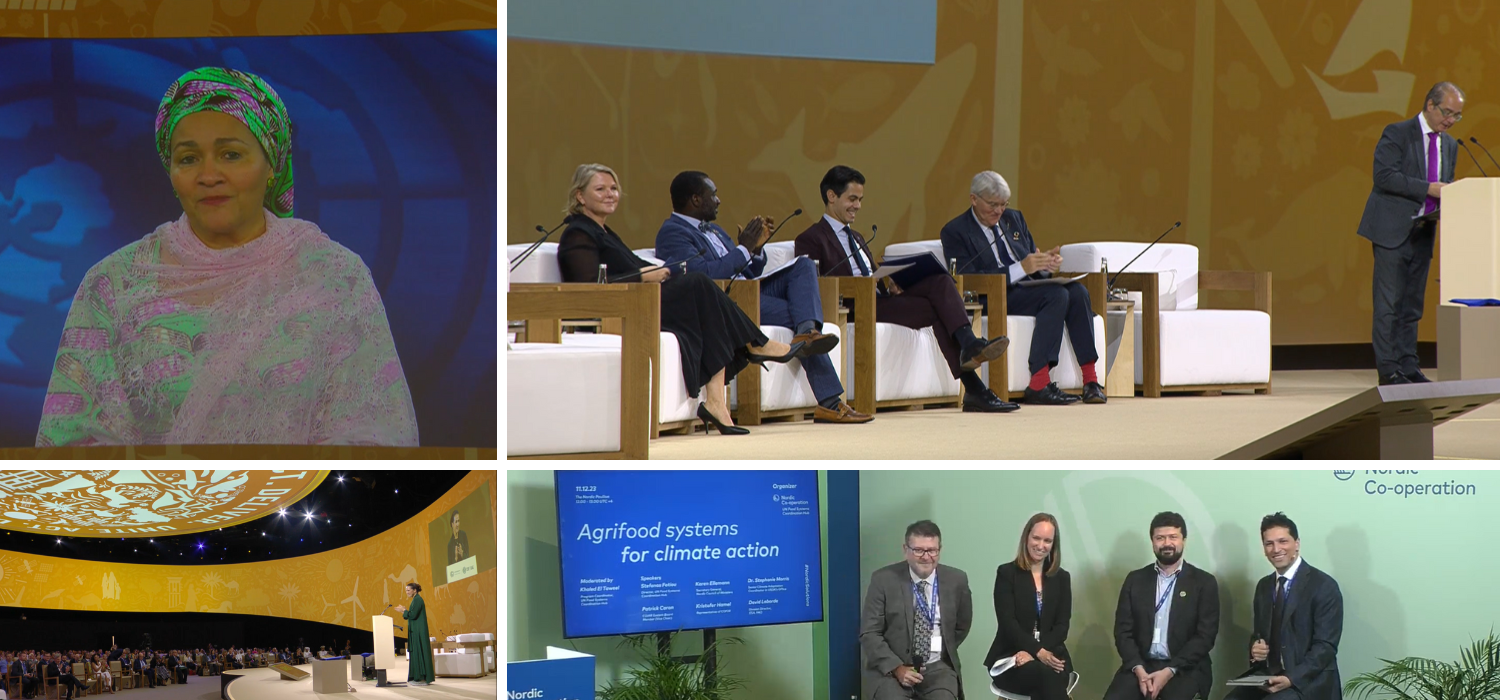SEED FUNDING JOINT PROGRAMMES
Egypt
Strengthening Sustainable and Resilient Food and Nutrition Systems in Egypt for SDG Acceleration




PROJECT TITLE | Strengthening Sustainable and Resilient Food and Nutrition Systems in Egypt for SDG Acceleration |
| Context | Egypt engaged actively in the 2021 Food Systems Summit process, convening a national dialogue and developing national pathways with recommended interventions for improving food security and nutrition by 2030. To enhance multi-sectorial coordination and spearhead the transformation process, the Government created a National Committee for Food and Nutrition Systems chaired by the Prime Minister and bringing together several ministries to coordinate joint actions. Strengthening coordination mechanisms, fostering multi-stakeholder partnerships, consolidating accountability structures, focusing on the availability of evidence, analysis, and data, are identified as key priorities to strengthen the food systems governance structure in Egypt. |
| PUNOs | WFP, FAO, UNICEF |
| Contribution to SDGs | SDG 2 Zero Hunger, SDG 3 Good Health and Well-being, 12 Responsible Consumption and Production. |
| Contribution to other SDG transitions | Climate, biodiversity, pollution |
| Duration | June 2024 – May 2025 |
| Expected financial leverage | $87,000 (PUNO co-financing) |
| Alignment with SG Call to Action | Policy integration; Food systems governance; Research, data, technology and innovation; Inclusive and participatory design; Private sector engagement |
| Outcomes | The JP contributes to strengthening policy and governance frameworks for food systems transformation and generating evidence and analysis on key dimensions of food systems to inform decision-making, supporting the work of the National Committee for Food and Nutrition Systems. The JP complements the government’s flagship program “Country Platform for the Nexus of Water, Food and Energy”, which provides a mechanism to mobilize climate finance and private investments. |
| Partners |
|
| Outputs |
|
Advancing sustainable food systems and climate goals at COP28
The UN Food Systems Coordination Hub collaborates with the COP28 Presidency to advance sustainable food systems and support national efforts towards the SDGs and Paris Agreement targets.

In a year of strategic partnership between the UN Food Systems Coordination Hub and the COP28 Presidency, the Hub marked its inaugural participation at the 28th Session of the United Nations Conference of the Parties on Climate Change (COP28) held from November 30 to December 12, 2023, in Dubai, United Arab Emirates.
The COP28 Presidency has underscored the vital role of food systems in accelerating the Sustainable Development Goals (SDGs) and the Paris Agreement targets. The Food Systems and Agriculture Agenda, launched during the UN Food Systems Summit +2 Stocktaking Moment (UNFSS+2) in Rome, prioritizes key food systems objectives, including aligning national pathways and agricultural policies with Nationally Determined Contributions (NDCs) and National Adaptation Plans (NAPs) by 2025. The Hub played a pivotal role in advancing these objectives and was acknowledged as a key partner in implementing the Emirates Declaration on Sustainable Agriculture, Resilient Food Systems, and Climate Action, endorsed by 159 countries. Additionally, the Hub's new Convergence Initiative gained recognition as a critical step in transforming food systems in alignment with climate action in addition to supporting the COP28 UAE Declaration's implementation.
During COP28's "Food, Agriculture, and Water Day," the Hub co-organized several events emphasizing the vital role of food systems transformation in addressing climate change. For more information, please refer to the Hub’s COP28 webpage.
This year’s COP marked a significant milestone in global efforts to address the crucial interplay between climate change and food systems. As the world faces the growing challenges posed by climate change, it is increasingly evident that transforming food systems is not merely a component but a linchpin in achieving a sustainable and climate-resilient future.
The Hub will continue to play its role, in cooperation with the COP29 Presidency in Azerbaijan, and the COP30 Presidency in Brazil, to ensure that food systems challenges are addressed and to support National Convenors in transforming their food systems to be healthy, sustainable, and resilient.
